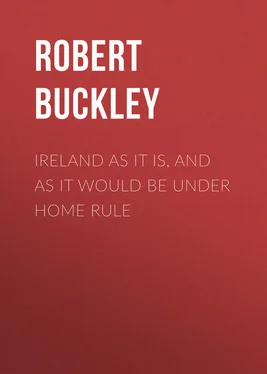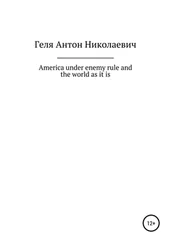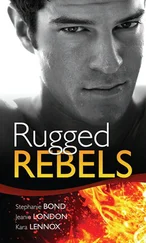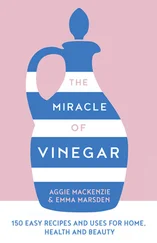Robert Buckley - Ireland as It Is, and as It Would Be Under Home Rule
Здесь есть возможность читать онлайн «Robert Buckley - Ireland as It Is, and as It Would Be Under Home Rule» — ознакомительный отрывок электронной книги совершенно бесплатно, а после прочтения отрывка купить полную версию. В некоторых случаях можно слушать аудио, скачать через торрент в формате fb2 и присутствует краткое содержание. ISBN: , Жанр: foreign_antique, foreign_prose, на английском языке. Описание произведения, (предисловие) а так же отзывы посетителей доступны на портале библиотеки ЛибКат.
- Название:Ireland as It Is, and as It Would Be Under Home Rule
- Автор:
- Жанр:
- Год:неизвестен
- ISBN:http://www.gutenberg.org/ebooks/29710
- Рейтинг книги:5 / 5. Голосов: 1
-
Избранное:Добавить в избранное
- Отзывы:
-
Ваша оценка:
- 100
- 1
- 2
- 3
- 4
- 5
Ireland as It Is, and as It Would Be Under Home Rule: краткое содержание, описание и аннотация
Предлагаем к чтению аннотацию, описание, краткое содержание или предисловие (зависит от того, что написал сам автор книги «Ireland as It Is, and as It Would Be Under Home Rule»). Если вы не нашли необходимую информацию о книге — напишите в комментариях, мы постараемся отыскать её.
Ireland as It Is, and as It Would Be Under Home Rule — читать онлайн ознакомительный отрывок
Ниже представлен текст книги, разбитый по страницам. Система сохранения места последней прочитанной страницы, позволяет с удобством читать онлайн бесплатно книгу «Ireland as It Is, and as It Would Be Under Home Rule», без необходимости каждый раз заново искать на чём Вы остановились. Поставьте закладку, и сможете в любой момент перейти на страницу, на которой закончили чтение.
Интервал:
Закладка:
"Arrah, now, look at the holy man. He puts on his hat widout a wurrud, whin he could strike the man dead wid jist sayin' a curse. 'Tis a good saint he is, to go wid the police, whin if he sthretched out his hand he could wither thim up, an' bur-rn thim like sthraws in the blazin' turf!"
These people have votes, and to a man support the Nationalist party. It is proposed to place Ireland under a Government governed by these good folks, who are in turn governed by their sacred medicine-men.
A member of the firm of Cooke Brothers, a native of Cork, in business in this city fifty years, said: —
"There can be no doubt that the bill means ruin for Ireland, and therefore damage to England. The poor folks here believe the most extravagant things, and follow the agitators like a flock of sheep. They are undoubtedly wanting in energy. We have the richest land in Ireland, wonderful pastures that turn out the most splendid cattle in the world, big salmon rivers, a most fruitful country, a land flowing with milk and honey. As the rents are judicially fixed there can be no ground for complaint, but the people will not help themselves. Whether it is in the climate I cannot say, but I must reluctantly admit – and no one will gainsay my statement – that the people of the South, to put it mildly, are not a striving sort.
"They want somebody else to do something for them. They get on a stick and wait till it turns to a horse before they ride. No Act of Parliament will help them, for they will not help themselves.
"Look at the magnificent country you saw from Dublin to this city. Compare it with the black and desolate bogs of Ulster, and then ask yourself this question – How is it that the Ulster people, with far worse land, worse harbours, worse position, and having the same laws, are prosperous and content to have no change? If the Northerns and Southerns would swop countries, Ireland must develop into one of the most prosperous countries in the world. The Ulster men are tremendously handicapped as against the Munster folks, but – they are workers. Some say that if they were here the climate would enervate them, but I do not find that my experience countenances this supposition. Fifty years ago all the leading merchants and tradesmen of Cork were Catholics. It is not so now. What does that prove? I withhold my own opinion.
"The Southerners are better fixed than the Ulstermen, but they are idle, and – this is very important – extremely sentimental."
An avowed Nationalist, one Sullivan, completely bore out this last statement. "We want to manage our own business, and be ruled by Irishmen. You say in England that we shall be poor, and so we may, but that is no argument at all. It might influence a nation of shopkeepers, but it has no weight with Irishmen, who have a proper and creditable wish to make their country one of the nations of the world. The very servant girls feel this, and the poorest peasant woman now having what she calls a 'tay brakefast' is willing to go back to porridge if the country was once rid of the English. Never you mind what will happen to us. Cut us adrift, and that will be all we ask. If we need help we can affiliate with America or even France. The first is half our own people, the second understands the Irish nation, which fought for centuries in the French armies, and, under Marshal Saxe, an Irishman, routed the English at Fontenoy." This gentleman was civil and moderate in tone, but he did not promise to walk down the ages arm-in-arm with England, attesting eternal amity by exchanging smokes and drinks. "We'll be very glad to see the English as tourists," he said. "And they will have to behave themselves, too," he added, reflectively.
A large trader of Patrick Street has most serious misgivings as to the effect of the bill. He said: —
"I had just been over to England to make purchases. Arriving here, I found the bill just out. I read it, and at once cancelled half my orders. We are reducing stock. What Home Rule would do for us I cannot contemplate. The mere threat amounts to partial paralysis. What the Cork people want with Home Rule is beyond me. They have everything in their own hands. The city elections of all kinds are governed by the rural voters of five miles round. Wealth and commercial capital are completely swamped by these obedient servants of the priests. Mr. Gladstone talks of an Upper House, with a £20 qualification. Why, the qualification for the Grand Jury is £40. Many of the twenty-pounders round here cannot read or write, and yet they will be qualified for the Irish House of Lords.
A customer came up and said: – "Gladstone wants to hand the capital and commerce of this country to men like Tim Healy, who expects to be Prime Minister, and who will succeed, if the bill passes and he can eat priestly dirt enough. I knew where he was reared in Waterford, in a little tripe and drischeen shop."
I rose to a point of order. Would the honourable member now addressing the House kindly explain the technical term "drischeen shop?" "Certainly. The drischeen is a sort of pudding, made of hog's blood and entrails, with a mixture of tansy and other things. Tim would know them well for he was reared on them, which accounts for his characteristic career. Do you know that the Queenstown Town Commissioners call each other liars, and invite each other to come out and settle it on the landing? Get the Cork Constitution , look over the file, and you'll drop on gems that will be the soul of your next letter. Don't miss it. And that's the sort of folks Mr. Gladstone would trust with the fate of England as well as Ireland, for their fates would be the same. You cannot separate them. The people of England do not seem to see through that. They will have an awful awakening. And serve them right. They make a pact with traitors; they offer their throats to the murderer, and they say, 'Anything to oblige you. I know you won't hurt us much.'
"The Southern Irish are the most lovable people in the world, with all their faults, if they were not led astray by hireling agitators, who ruin the country by playing on the people's ignorance, exciting the Catholic hope of religious domination, and trusting to damage England as a great spreader of Protestantism. A lie is no lie if told to a Protestant. To keep a Protestant out of heaven would be a meritorious action. And they would readily damage themselves if by doing so they could also damage England. Englishmen hardly believe this, but every commercial traveller from an English house knows it is true."
I tested a number of English commercials on this point. All confirmed the statement above given. Many had been Gladstonians, but now all were Unionists. None of them knew an English or Scotch commercial who, having travelled in Ireland, remained a Home Ruler. Such a person, they thought, did not exist. Admitted that for business purposes the apparent rara avis might possibly, though not probably, be found, all agreed that no Englishman in his senses, with personal knowledge of the subject, could over support Home Rule. Two Gladstonians went from Chester to Tipperary to investigate the troubles: both returned converted. Six men from a shop-fitting establishment in Birmingham worked some weeks in Dublin: all returned Unionist to the core. This from Mr. Sibley, of Grafton street, Dublin, in whose splendid shop I met the Duchess of Leinster, handsomest woman in Ireland, and therefore (say Irishmen) handsomest in the world. She was buying books for Mr. Balfour, who, she said, was a great reader of everything connected with Ireland or Irish affairs. Mr. Sibley is a partner of Mr. Combridge, of New street, Birmingham, and is a leading Irish Unionist. Returning to the cancelling of orders, I will add that Mr. Richard Patterson, J.P., of Belfast, the largest buyer of hardware in Ireland, has cancelled very largely, together with two other large firms, whose names he gave me. You will remember Mr. John Cook, the Protestant Home Ruler, of Derry. His manager, Mr. Smith, has written the Birmingham factor of the house, to omit his usual visit, as the firm will have no orders for him. A strange comment on Mr. Cook's theories of confidence. Mr. Cook is an excellent, a high-minded man. He asked me how I would class him among his party. I called him a Visionary in Excelsis.
Читать дальшеИнтервал:
Закладка:
Похожие книги на «Ireland as It Is, and as It Would Be Under Home Rule»
Представляем Вашему вниманию похожие книги на «Ireland as It Is, and as It Would Be Under Home Rule» списком для выбора. Мы отобрали схожую по названию и смыслу литературу в надежде предоставить читателям больше вариантов отыскать новые, интересные, ещё непрочитанные произведения.
Обсуждение, отзывы о книге «Ireland as It Is, and as It Would Be Under Home Rule» и просто собственные мнения читателей. Оставьте ваши комментарии, напишите, что Вы думаете о произведении, его смысле или главных героях. Укажите что конкретно понравилось, а что нет, и почему Вы так считаете.












